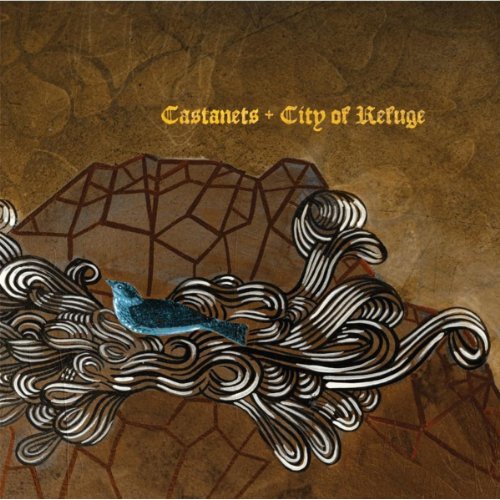
Castanets
City Of Refuge
Release Date: Oct 7, 2008
Genre(s): Indie, Rock
Record label: Asthmatic Kitty
Music Critic Score
How the Music Critic Score works
Buy City Of Refuge from Amazon
Album Review: City Of Refuge by Castanets
Very Good, Based on 5 Critics
Based on rating 8/10
Desolation is the canvas on which Castanets mastermind Ray Raposa chooses to present his unique brand of "experimental Americana," and City of Refuge does little to refute that notion. Recorded alone over three weeks in a desolate motel room in Overton, NV, Raposa (no stranger to depression, melancholy, and futility) populates his small corner of the country with a single electric guitar that conjures up images of a spaghetti Western gone all wrong. Similar in tone and timbre to bands like Calexico, Friends of Dean Martinez, and 16 Horsepower, but far more austere, Castanets' fourth album sounds like dust and tastes like rain.
Based on rating 4/5
Raymond Raposa has spent the last six years making folksy Americana that's as creepy as hell. City Of Refuge's 15 tracks are uneven in both length and musical depth - one track, High Plain 3, is just a minute and 31 seconds of quiet, droning ambient static - yet the record plays out like the cohesive score to a postmodern, post-apocalyptic western. The influence of traditional American standards is most evident on I'll Fly Away, which adds a creative (and ironic) twist to the tune of the Battle Hymn Of The Republic.
Based on rating 7.0/10
If Syd Barrett had been part of The Basement Tapes, it might have sounded like this. Oddly disjointed rhythms that nevertheless sound ancient and traditional haunt the latest offering from Castanets. City of Refuge was inspired by chance tour stop in Overton Nevada. Ray Raposa (he would be joined later on for help with overdubs by the likes of Scott Tuma and Sufjan Stevens) holed up for three weeks in a tiny desert motel and had at the sounds in his head and of those floating in from the lonely plains.
Based on rating 6.4/10
Ray Raposa ?shares his silenceRecorded in a Nevada hotel room over three weeks, City of Refuge is full of quiet dread. Ray Raposa’s voice doesn’t appear until track four, and the preceding songs are sketches of guitar noise bouncing against close walls. When he sings, his words grasp at self-understanding. “As long as I’ve lived, I’ve wanted to die,” he says on “Shadow Valley.” Only his cover of “I’ll Fly Away” breaks the loneliness—not that it needs to be broken.
Based on rating 2/5
Despite its title, it wasn't in an urban metropolis, but a motel room in the Nevada desert that Ray Raposa - the singing, songwriting soul of Castanets - sought asylum and inspiration for his fourth album. Three weeks spent writing and recording alone has resulted in a cathartic outpouring that's both half-baked and hauntingly memorable. Raposa's ethereal Americana layers sex with religion and acoustic with electric guitar.
'City Of Refuge'
is available now

